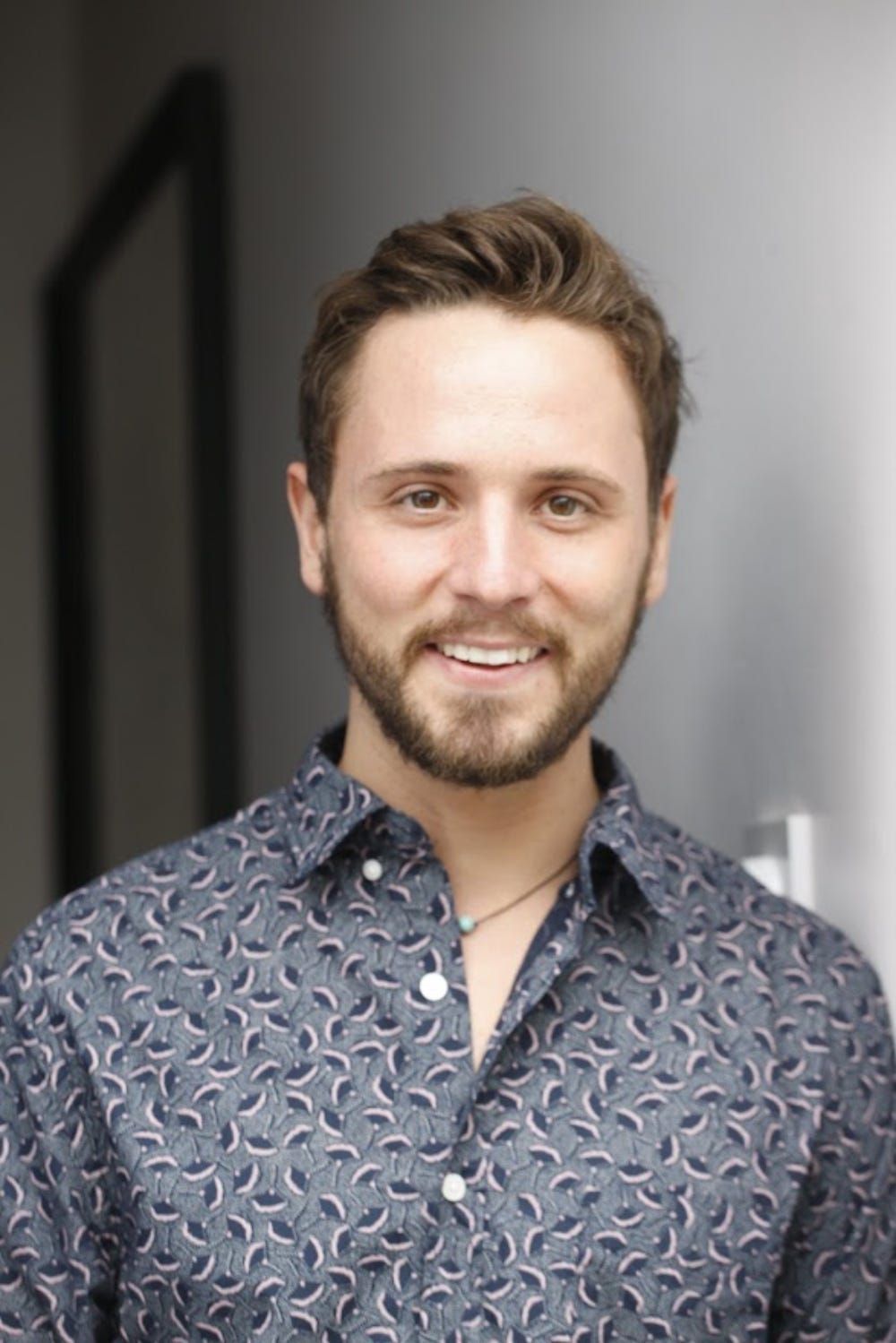Mental Health Champions: Why & How Ben Marks of The #WorkAnywhere Campaign Is Helping To Champion Mental Wellness

Life-work boundaries — I try to maintain healthy life-work boundaries via no work activity (that includes LinkedIn) on weekends and before 9am / after 6pm on weekdays.
As a part of our series about Mental Health Champions helping to promote mental wellness, I had the pleasure to interview Ben Marks.
Ben Marks is an impact entrepreneur, campaigner and writer, currently serving as the Founder & Executive Director of the #WorkAnywhere Campaign.
Thank you so much for doing this with us! Before we dig in, our readers would like to get to know you a bit. Can you tell us a bit about how you grew up?
I was raised in North London by very patient parents… School wasn’t for me. I had this hyperactive, entrepreneurial energy that the British education system isn’t great at nurturing. To be fair, it’s a hard problem to solve! I also experienced my first ‘panic attack’ when I was fourteen. They would become a recurring challenge for me. There were times when my anxiety was so bad that I would spend days or even weeks in bed. Overcoming that played a big part in my development.
You are currently leading a social impact organization that is helping to promote mental wellness. Can you tell us a bit about what you or your organization are trying to address?
#WorkAnywhere is a movement of people striving to bring about a healthier workforce. After launching the digital campaign in 2021, we started to champion remote workers’ rights with advocacy and research initiatives. Our mission statement is simple: we believe the freedom to choose where and how we work best should be available to everyone, everywhere. The societal benefits of remote work, such as lowering the cost of living, reducing emissions and increasing economic opportunities for women, are too powerful to ignore.
At the same time, while the pandemic is what made this movement possible, the speed and scale and chaos were always going to put pressure on workers’ well-being. It’s the greatest disruption to working patterns since WW2 and we’ve seen how poorly designed remote work– what most people experienced these last two years– can negatively impact our mental and social health. So we’re equally passionate about solving those problems.
Can you tell us the backstory about what inspired you to originally feel passionate about this cause?
I used to be a crazy, work-obsessed overachiever. That all changed when my anxiety finally spiraled out of control and I burned out — hard. Cognitive Behavioral Therapy helped me to see that my sense of self-worth was deeply linked to my ‘success’. That’s what ultimately drove me to the edge.
The myth that a life well lived is one where we’ve acquired as much money, power and status as possible is shared by many people today. That’s really what causes burnout and the associated problems, at least for some of us. You can manage your schedule better and take up yoga, but if you subscribe to that worldview, you’ll always be vulnerable to self-exploitation.
The question is: how do we tackle our culture’s toxic relationship with work? This is where I believe access to remote work can help. When our jobs no longer serve as the primary organizing factor in our lives– where we live and our main source of community– we find the space to think about what’s truly important. That’s how the lockdowns contributed to the so-called ‘great resignation’. Finally free from the hypnotic rhythms of the 9-to-5, many people stopped sleepwalking and thought: “what the hell am I doing with my life?!” In short: we believe that remote work can help to decouple our identities and our jobs. Its global adoption offers (part of) the structural change necessary for a widespread psychological and spiritual transformation to happen.
Many of us have ideas, dreams, and passions, but never manifest them. They don’t get up and just do it. But you did. Was there an “Aha Moment” that made you decide that you were actually going to step up and do it? What was that final trigger?
The trigger was millions of people being thrust into working from home for the first time as a result of pandemic lockdowns. COVID destroyed the cultural and technological barriers that had prevented remote work for many people in the past. We saw that this was a once-in-a-generation opportunity to reimagine our relationship with work… to re-write the rules. Equally, as I’ve already stated, this upheaval is exacerbating pre-existing pressures on workers’ well-being and we want to help.
Can you share the most interesting story that happened to you since you began leading your company or organization?
Our first European Parliament event covered the topic of loneliness & isolation. In addition to the politicians and business leaders, Olumide Gbenro, a social media influencer, came along to participate in the debate. He opened up about feeling so isolated when he first became a ‘digital nomad’ that he had suicidal thoughts. Not only was his candor and vulnerability so inspiring but it really cemented the ‘why’ of our campaign for me, and we decided to do research on the topic.
Fast forward six months and we’ve just released the results of our research on remote work loneliness, in partnership with Selina and experts from Boston University. It’s the first-ever study on workplace loneliness incorporating data from non-home remote work environments! We uncovered some really interesting insights and tangible steps that organizations can take to boost social fulfillment amongst their employees. I wrote about the results with Selina’s CEO, Rafael Museri, here.
None of us can be successful without some help along the way. Did you have mentors or cheerleaders who helped you to succeed? Can you tell us a story about their influence?
When I was recovering from ‘burnout’, I sought guidance from many of my business idols. From depression to low self-esteem, everyone had a story to share. These were people who I’d always thought were invincible. How wrong I was! My only regret is not figuring this out when I was 18. Pretending to be the ‘perfect founder’ all those years made my problems a lot worse.
According to Mental Health America’s report, over 44 million Americans have a mental health condition. Yet there’s still a stigma about mental illness. Can you share a few reasons you think this is so?
This is a complicated topic that I am not qualified to answer. Education has a lot to do with it. Stigma comes from misunderstanding and fear. Some people think that having a mental illness automatically makes you a danger to others. These are misconceptions that can be tackled with thoughtful education.
In your experience, what should a) individuals b) society, and c) the government do to better support people suffering from mental illness?
Individuals: be kind.
Society: promote a holistic understanding of human suffering through thoughtful education that’s untainted by corporate interests.
Government: I’ll stick to workforce well-being: 1) Make the freedom to work remotely a fundamental right and remove the barriers preventing a true ‘work-from-anywhere’ lifestyle. 2) Implement policy solutions supporting healthy life-work boundaries that can adapt to individual needs and preferences. 3) Invest in and support alternatives to home and office workspaces and carefully optimize them to foster meaningful connections.
What are your 5 strategies you use to promote your own well-being and mental wellness? Can you please give a story or example for each?
1. Meditation
Start with an app. Waking Up is the best one I have used.
2. Therapy techniques
Two things I’ve stuck with long past CBT include ‘compassionate imagery’ (this is an amazing resource) and a daily diary where I jot down some of the ‘positive’ things I did the day before, which can range from epic to mundane (usually the latter). These deceptively powerful techniques have softened the perfectionistic and uncharitable thought patterns that once drove me to the edge.
3. Nutrition and exercise
The mind-body connection and all that.
4. Learning
A good book can transform one’s understanding of themself, life and the universe. What more needs to be said?
5. Life-work boundaries
I try to maintain healthy life-work boundaries via no work activity (that includes LinkedIn) on weekends and before 9am / after 6pm on weekdays.
What are your favorite books, podcasts, or resources that inspire you to be a mental health champion?
Podcast/YouTube Series:
John Vervaeke’s ‘Awakening from the Meaning Crisis’.
Books:
Cutting Through Spiritual Materialism — Chögyam Trungpa
How to Change Your Mind — Michael Pollan
The Gulag Archipelago — Aleksandr Solzhenitsyn
Man’s Search for Meaning — Viktor Frankl
Brave New World — Aldous Huxley
Cracked: Why Psychiatry is Doing More Harm Than Good — James Davies
The Disappearance of Rituals — Byung-Chul Han
To Have or To Be — Erich Fromm
The Nature of Consciousness — Rupert Spira
The Master and his Emissary — Iain McGilchrist
If you could tell other people one thing about why they should consider making a positive impact on our environment or society, like you, what would you tell them?
Orienting my work towards serving others has been a positive experience for me. It’s a win/win. But whatever you’re doing is great. You’re great!
How can our readers follow you online?
LinkedIn. Let’s connect!
This was very meaningful, thank you so much. We wish you only continued success on your great work!
Love you.
Mental Health Champions: Why & How Ben Marks of The #WorkAnywhere Campaign Is Helping To Champion… was originally published in Authority Magazine on Medium, where people are continuing the conversation by highlighting and responding to this story.
